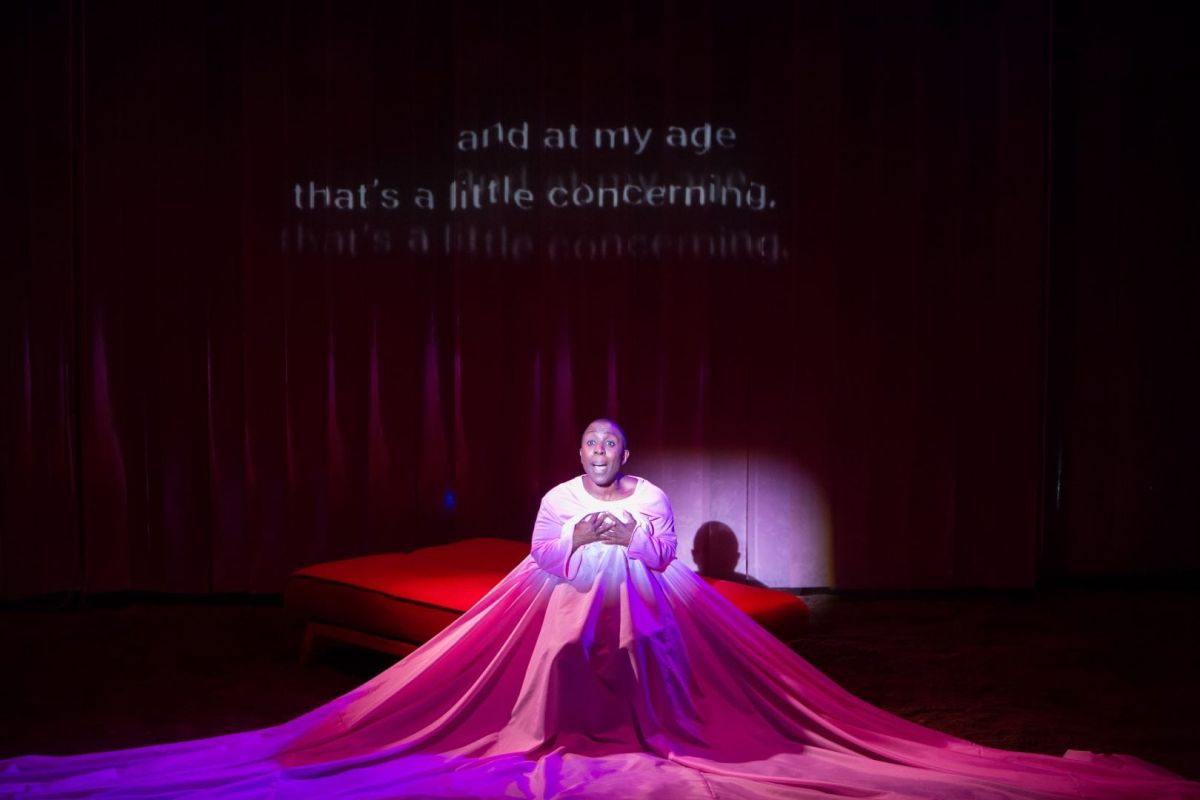Review: ‘Future Bodies’
By Anuli Changa

“What is this nostalgia you lot have for your fucking me-ness?” ‘Future Bodies’ seemed to continuously ask. Is ceasing to be human such a bad thing? ‘Future Bodies’ was a powerful and emotional show to experience, visceral and thought-provoking from beginning to end. The show brings together computer science, neuroscience, and the science of touch in a theatrical setting.
Parts of ‘Future Bodies’ was performed in British Sign Language, the beginning of the physical theatre elements of the show which grew in dominance as the show progressed. The physicality of signing led into the wordless contemporary dance-like final section of the show. This was fascinating and multi-layered in its approach, and at times disconcerting to watch (this felt intentional).
Lara Steward, a deaf actress had great comedic timing and it was great to see hearing actors sign. The whole show was accompanied by projected subtitles, adding to its technological feel, yet this also made it difficult for the actors. The audience could see whenever the actors deviated from the script or forgot a line. Despite a few stumbles, it was impressive how easily the scientific language was embedded into the script, creating the illusion of the norm.
As well as subtitles, projections of rather forceful statements appeared frequently: “no one cares if you don’t understand”, “no one cares if you do understand.” It was sometimes hard to know where to look with so much going on!
Becky Wilke, co-creator of the show (and music) was a one-woman band. As one third of RashDash, she was almost entirely blue (including her face) and under ultraviolet light. Her voice and ability to create songs seemingly from scratch using only a loop peddle was very impressive. Lines such as “my upgrades bring all the boys to the yard” produced laughs, an amusing if slightly worrying variation on a well-known lyric.
The interlocking scenes covered ideas of enhancements for your child, upgrades not dissimilar to the narrative on getting your child vaccinated. In other scenes, employees were effectively being forced to ‘upgrade’ if they wanted to continue working. Is a trip into your brain really an invasion of privacy? Or are we already being controlled, and the physical chip simply the final step?
The show was firmly placed in ‘the future’ by the fact that one of the characters had to ask who Beyoncé was! Another amusing, if sobering scene was one where the actors sat on stage staring at their phones, as the flashing screens increased in speed with the music. This went on with no speaking for an uncomfortably long time, likely reminding the audience of similar moments where people meet-up to sit on technology.
The underlying concept of the show seemed to be the different ways in which humans could transcend their bodies, transferring their consciousness into machines and beyond. Or at least that’s the level to which I understood all the scientific language! It was fascinating to watch conversations unfold around the idea of a person’s consciousness existing in more than one place simultaneously, including at a quantum level.
A stand out scene was Alison Halstead’s monologue about the loss of her wife to breast cancer. A previous scene saw her wife (played by Kate Maravan) receive a phone alert that she had breast cancer and dismissively say she would get checked later. Halstead delivered her speech in such a moving manner, as she sat making the decision whether to have the memories or pain of the event removed. A particularly stand out line was “I want to stop stubbing my toe on the memory of her over and over…” — a profound way to describe grief over time.
The co-creator of ‘Future Bodies’ and artistic director of Unlimited Theatre commented that he hoped audiences would leave “…feeling like the world is a slightly different colour.” It certainly had this desired effect on me.







